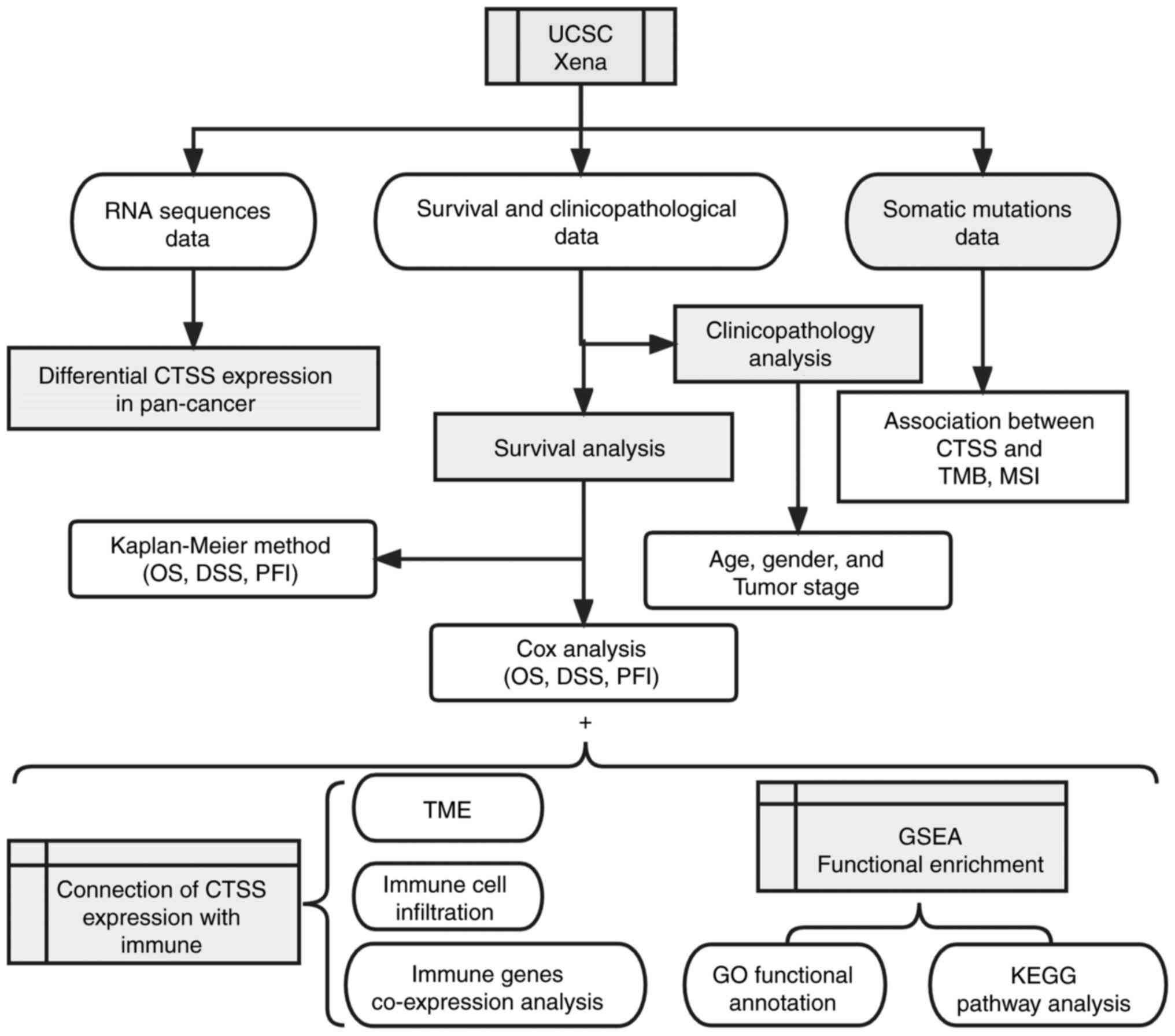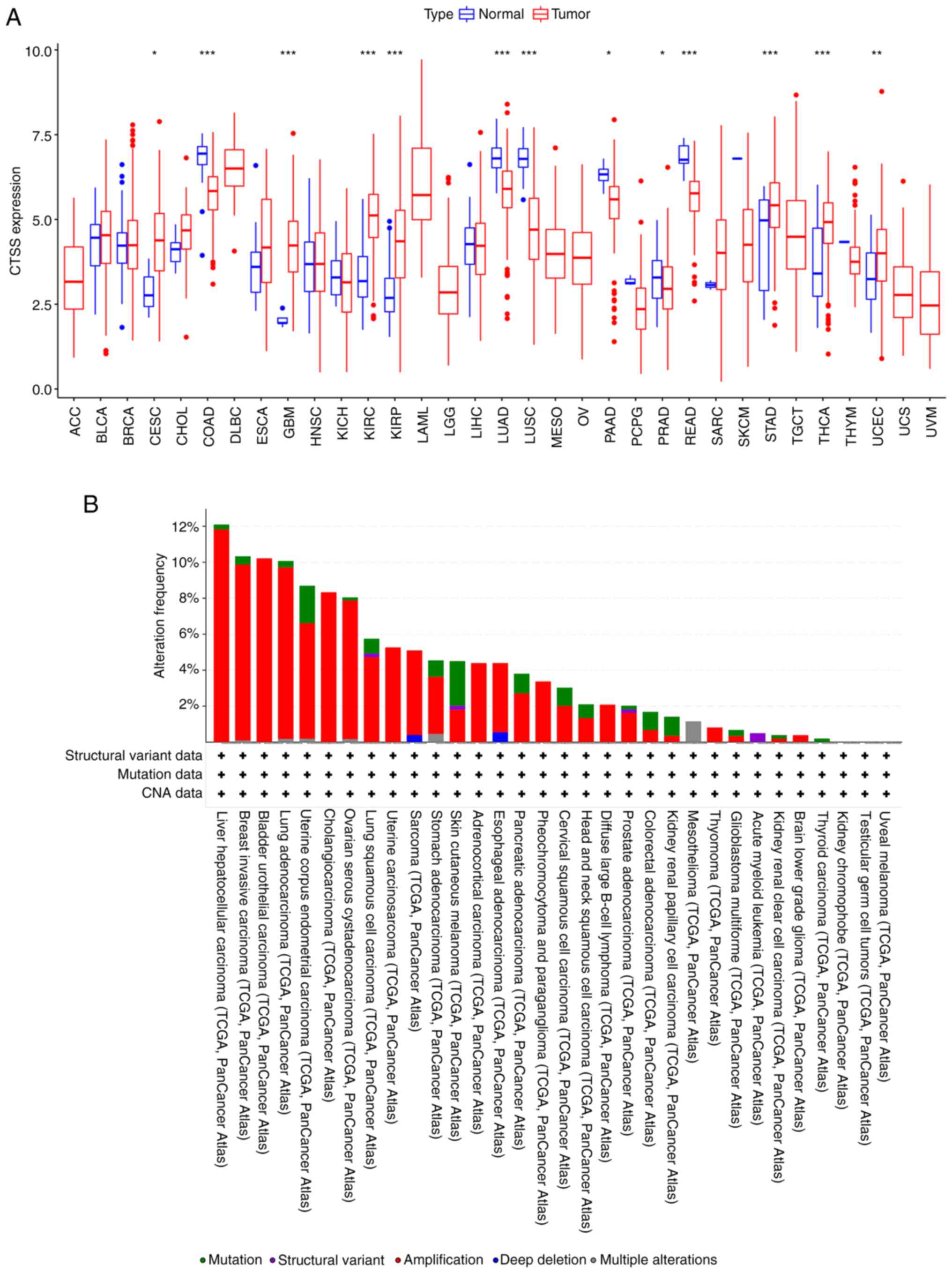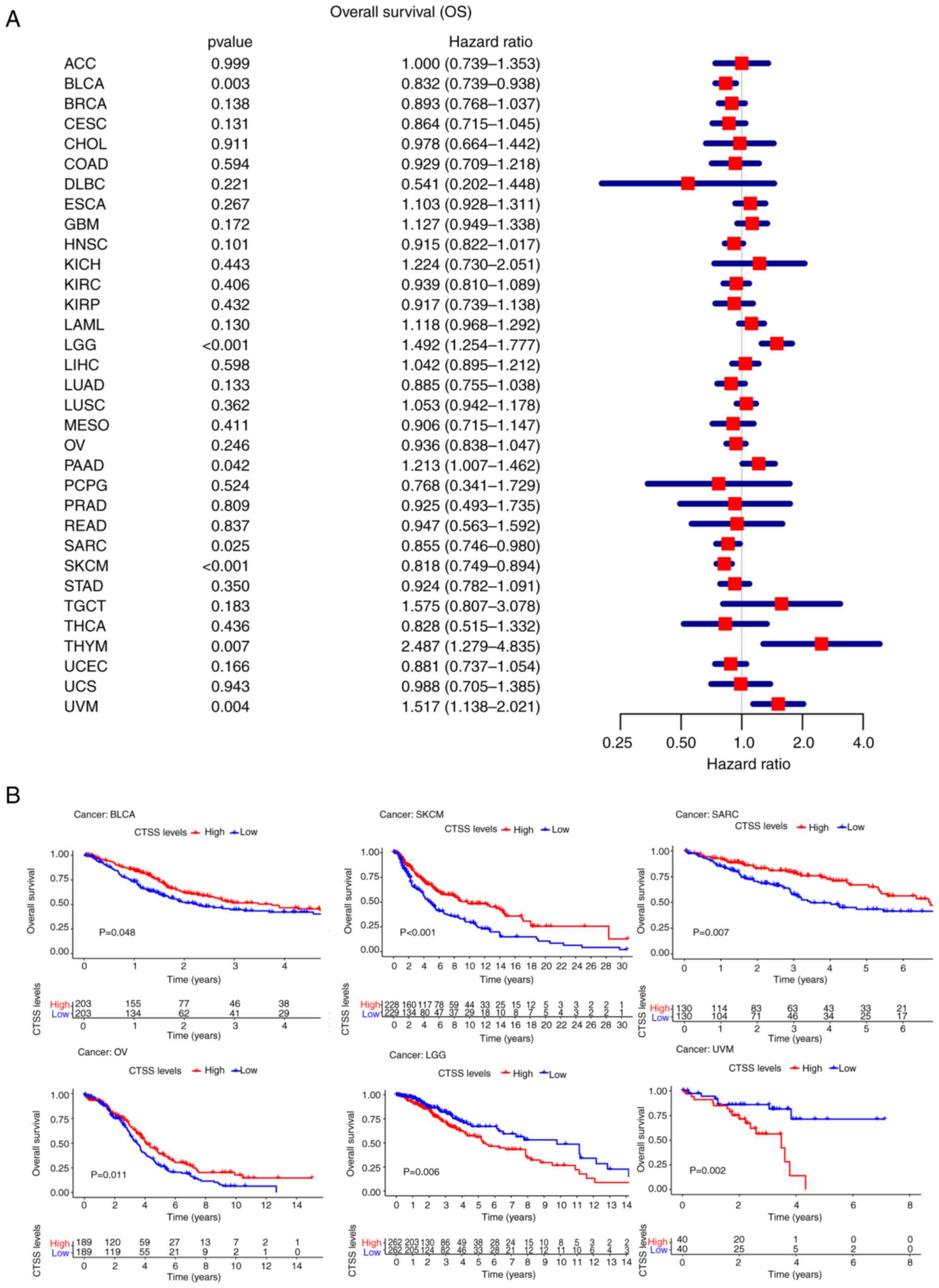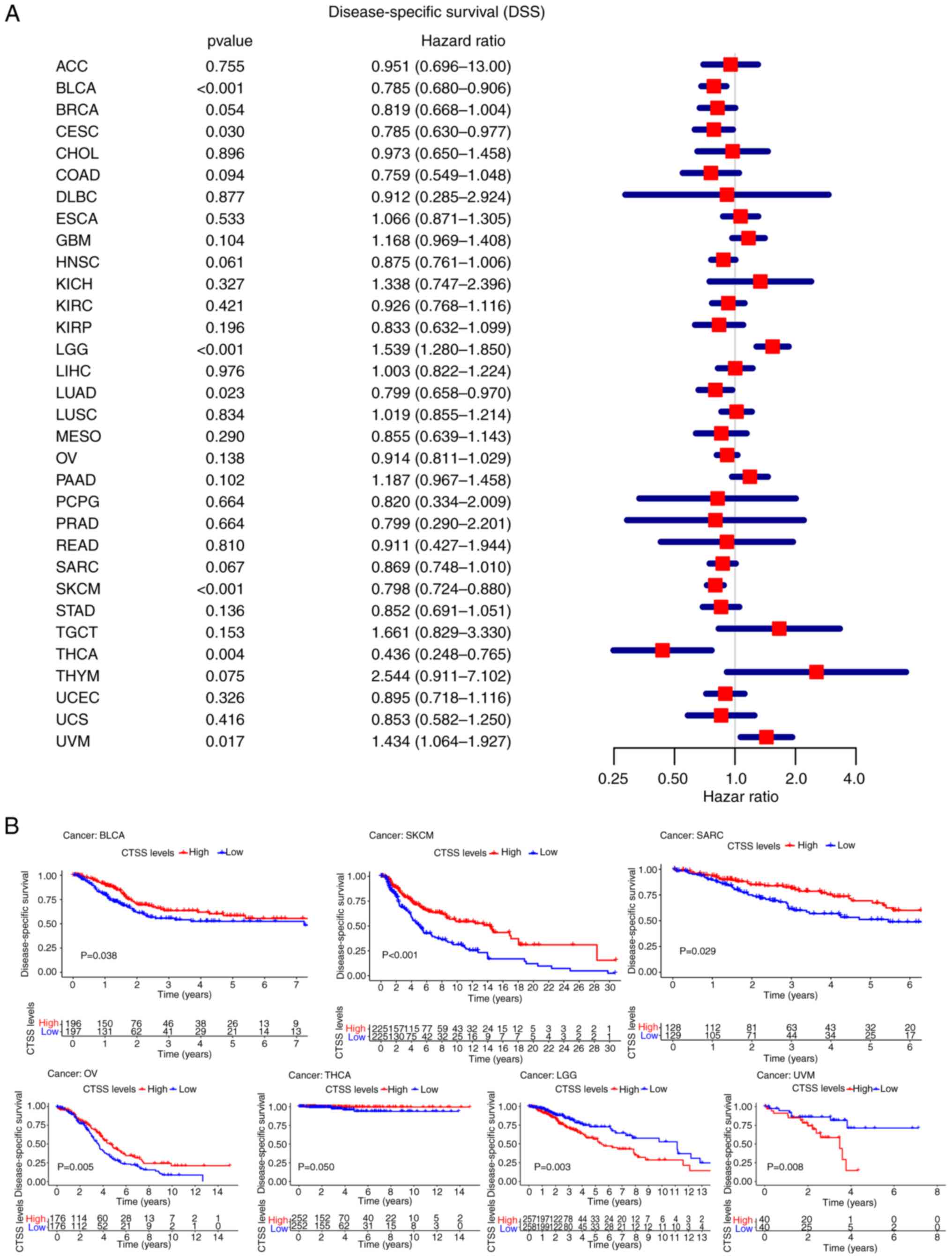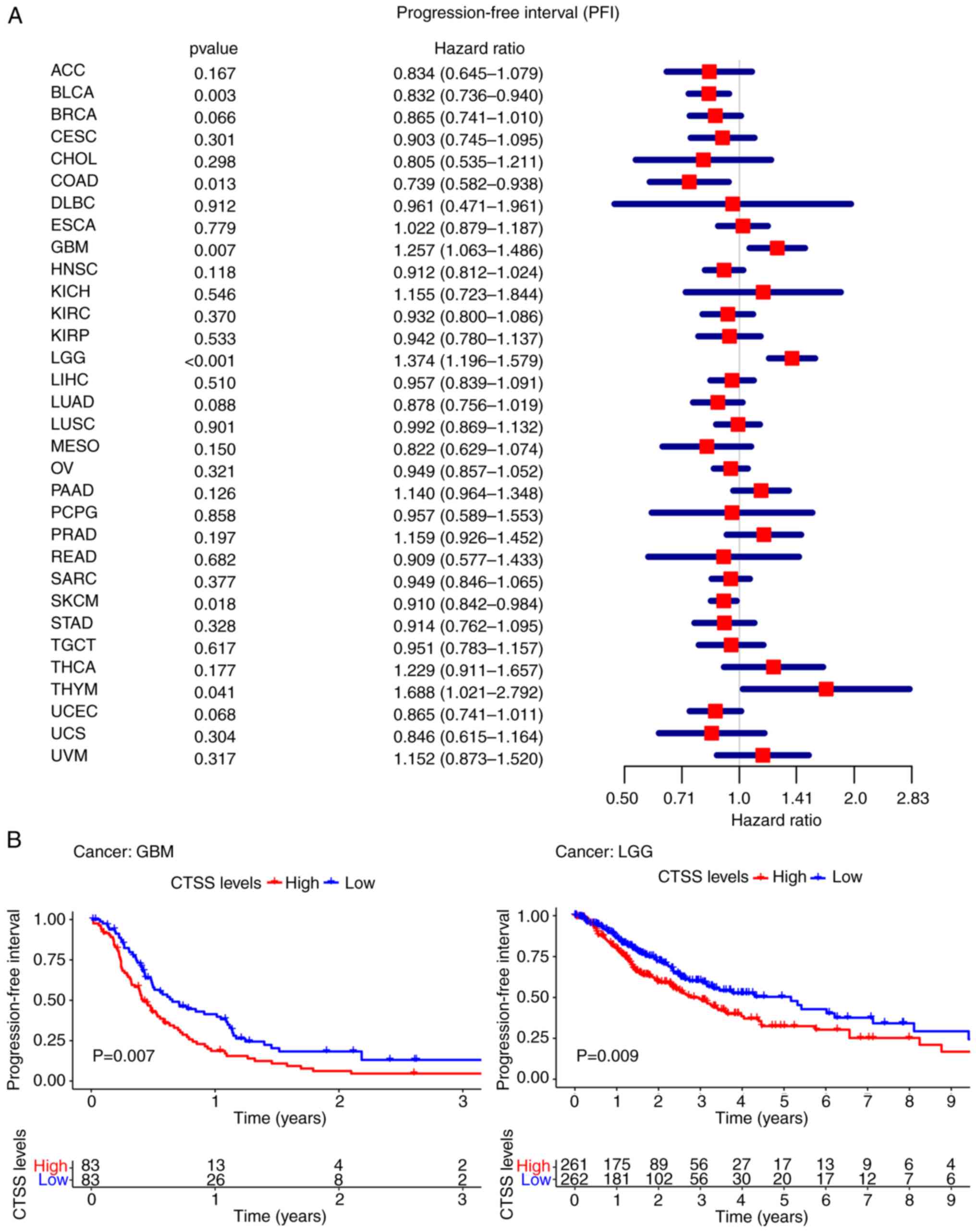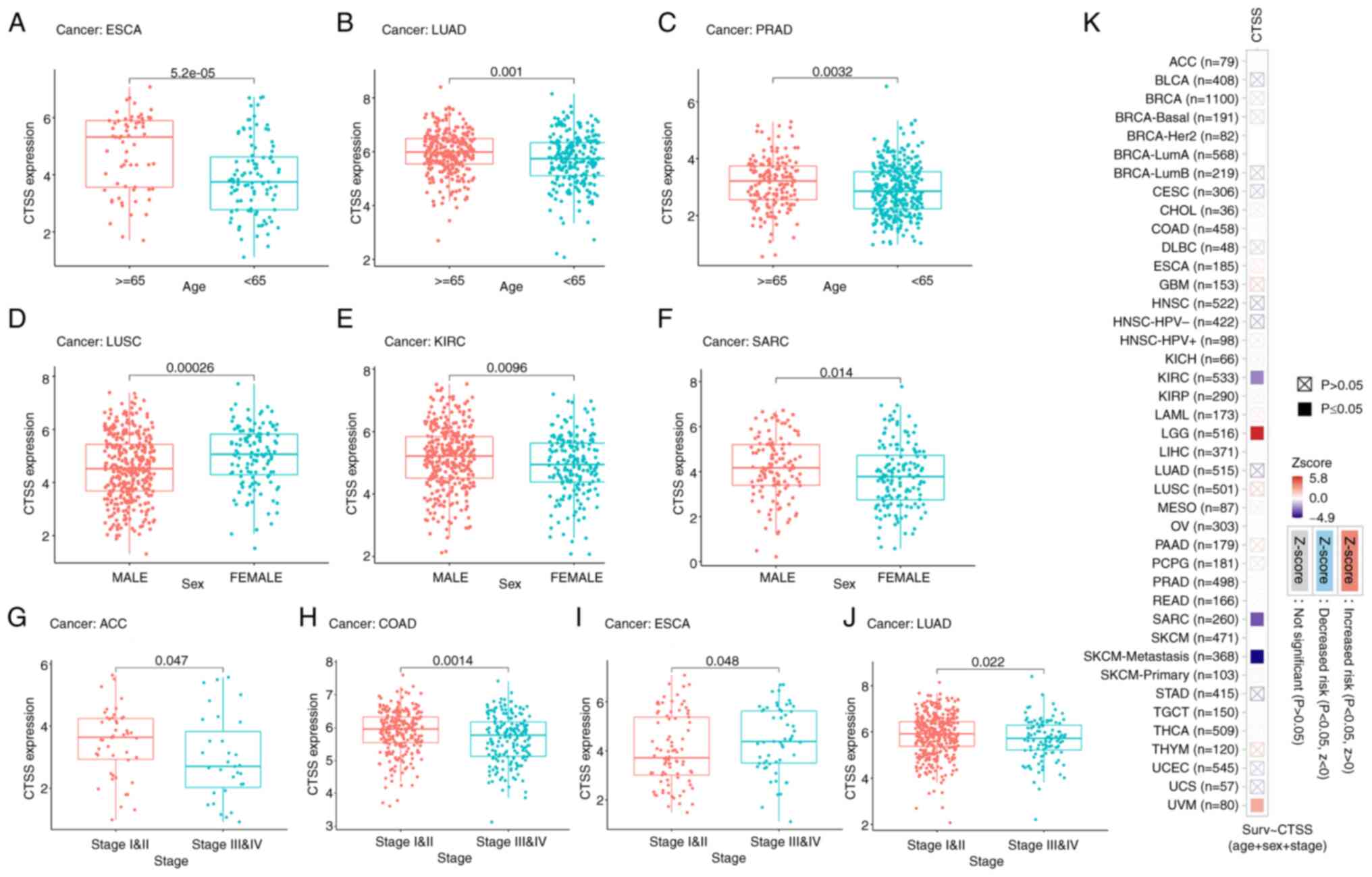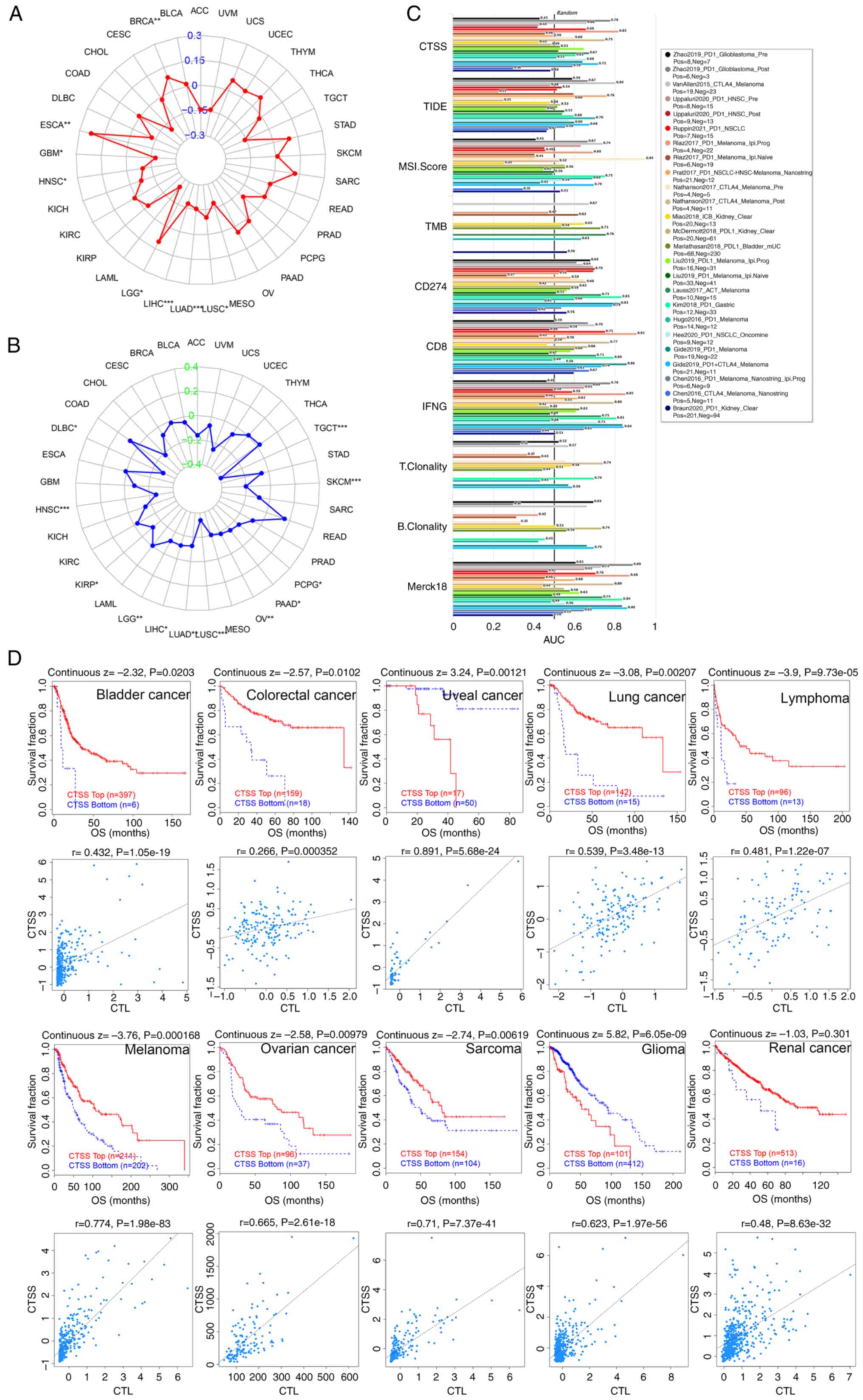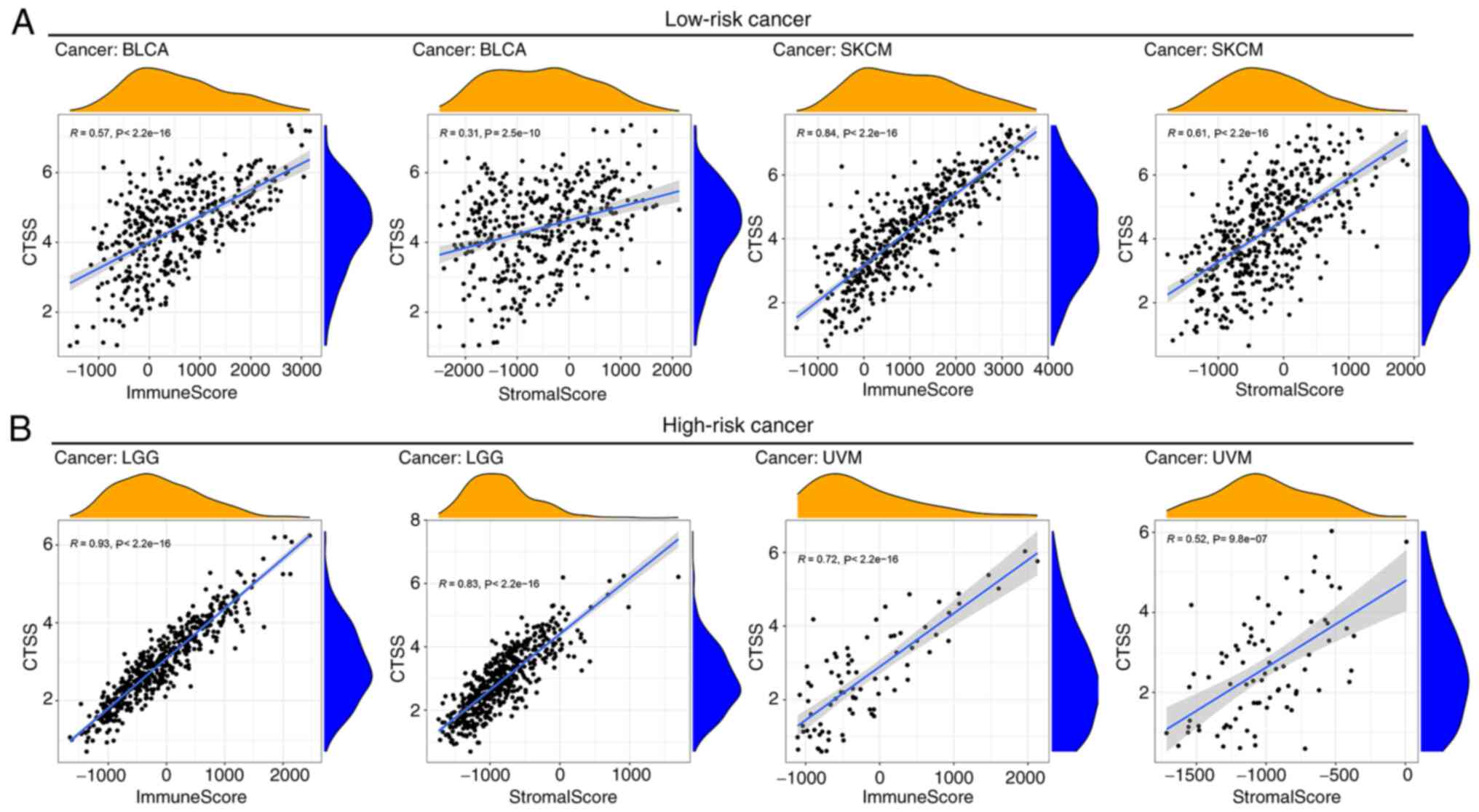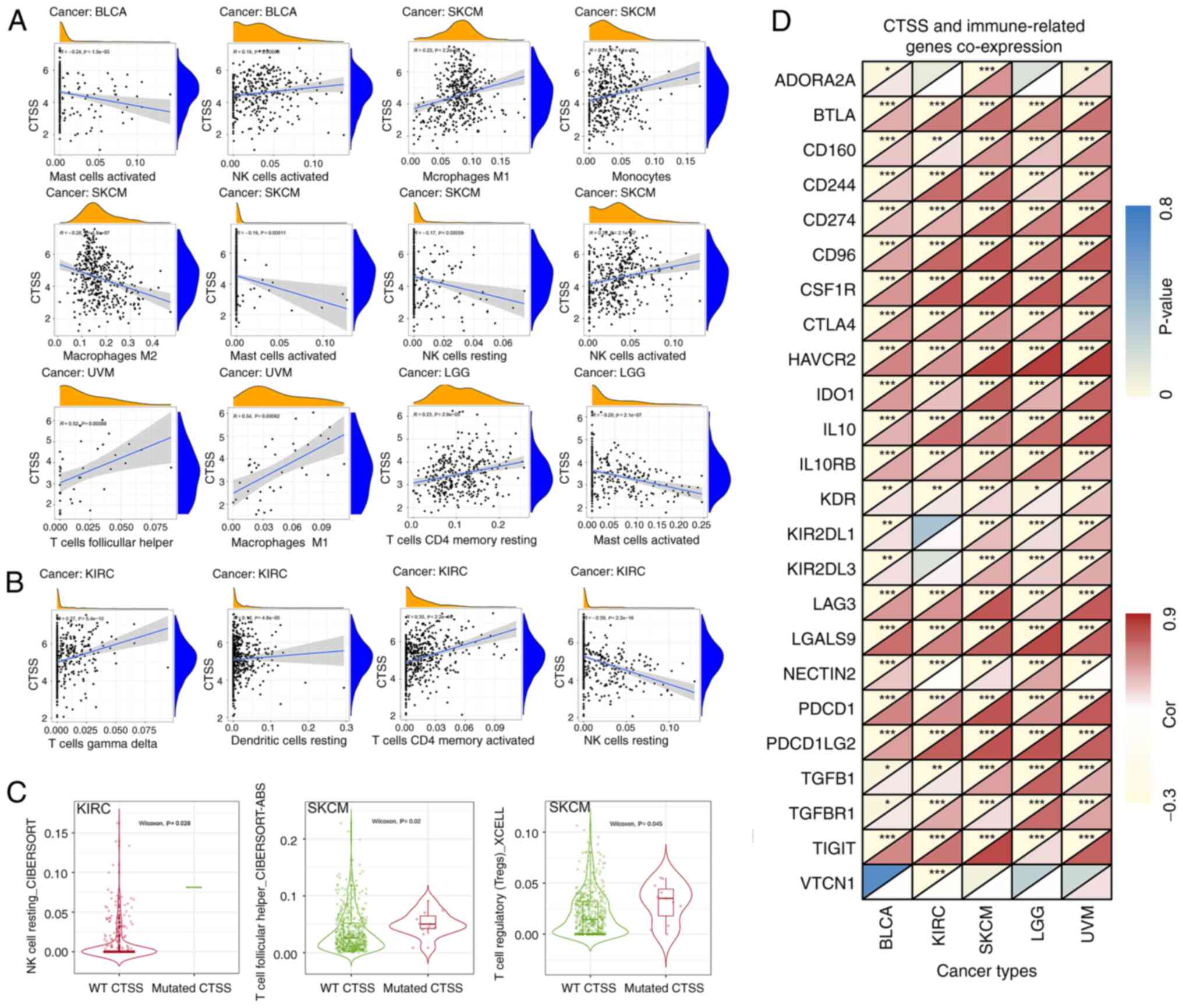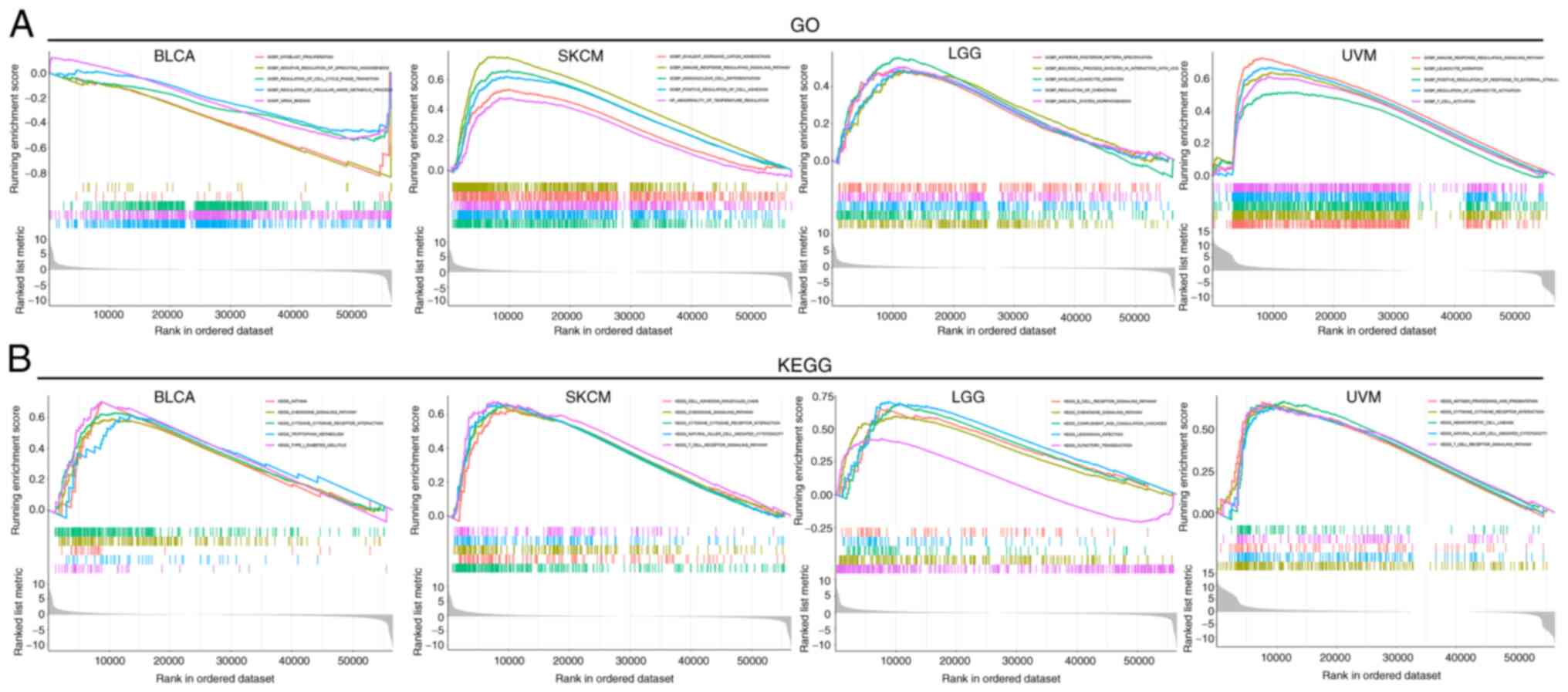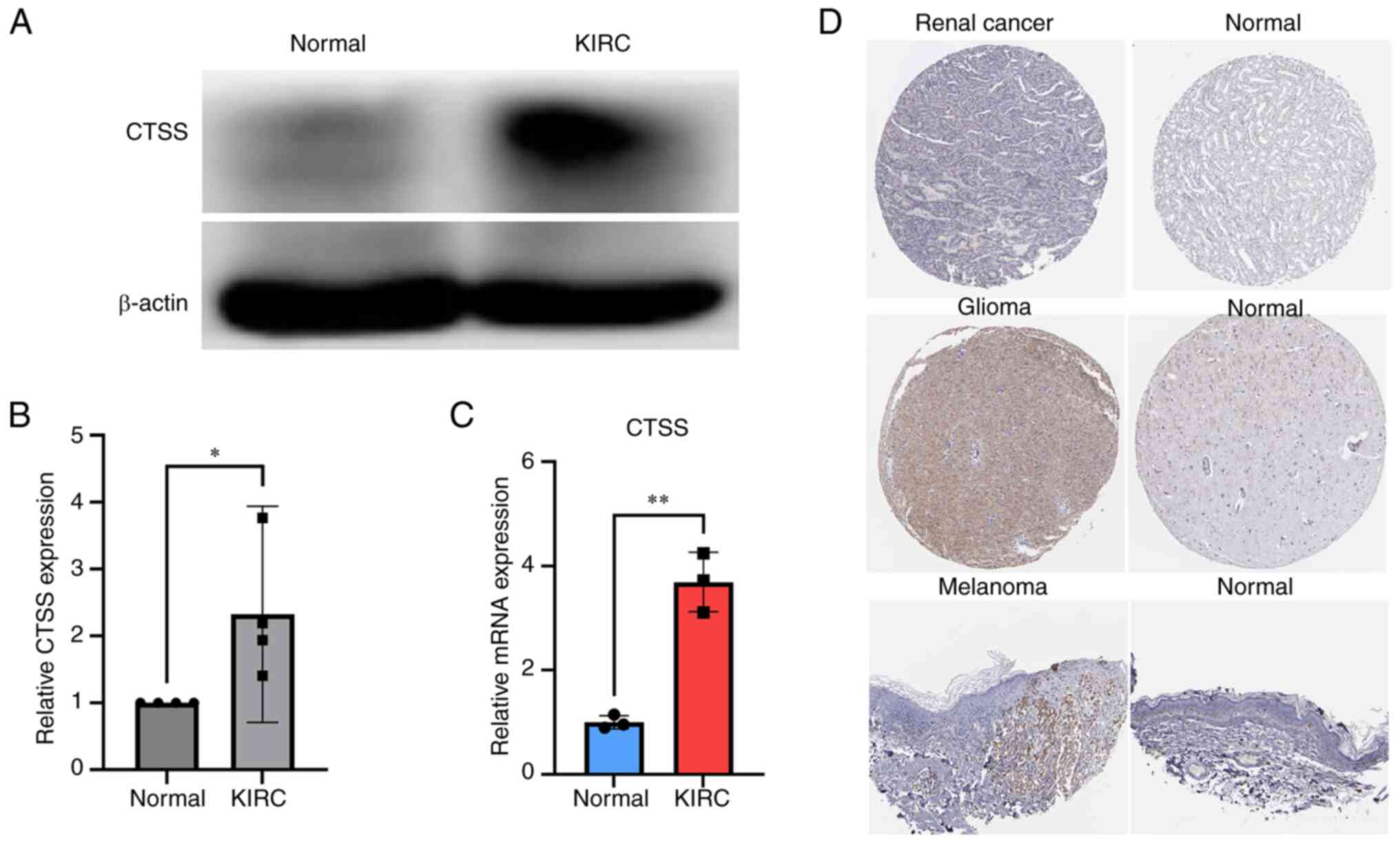|
1
|
Sung H, Ferlay J, Siegel RL, Laversanne M,
Soerjomataram I, Jemal A and Bray F: Global Cancer Statistics 2020:
GLOBOCAN estimates of incidence and mortality worldwide for 36
cancers in 185 countries. CA Cancer J Clin. 71:209–249. 2021.
View Article : Google Scholar : PubMed/NCBI
|
|
2
|
Miriyala R, Mahantshetty U, Maheshwari A
and Gupta S: Neoadjuvant chemotherapy followed by surgery in
cervical cancer: Past, present and future. Int J Gynecol Cancer.
32:260–265. 2022. View Article : Google Scholar : PubMed/NCBI
|
|
3
|
van den Akker MJE, Horeweg N, Beltman JJ,
Creutzberg CL and Nout RA: Efficacy and toxicity of postoperative
external beam radiotherapy or chemoradiation for early-stage
cervical cancer. Int J Gynecol Cancer. 30:1878–1886. 2020.
View Article : Google Scholar : PubMed/NCBI
|
|
4
|
Topalian SL, Weiner GJ and Pardoll DM:
Cancer immunotherapy comes of age. J Clin Oncol. 29:4828–4836.
2011. View Article : Google Scholar : PubMed/NCBI
|
|
5
|
Abril-Rodriguez G and Ribas A: SnapShot:
Immune checkpoint inhibitors. Cancer Cell. 31:848.e12017.
View Article : Google Scholar : PubMed/NCBI
|
|
6
|
Washah HN, Salifu EY, Soremekun O,
Elrashedy AA, Munsamy G, Olotu FA and Soliman MES: Integrating
bioinformatics strategies in cancer immunotherapy: Current and
future perspectives. Comb Chem High Throughput Screen. 23:687–698.
2020. View Article : Google Scholar : PubMed/NCBI
|
|
7
|
Bagchi S, Yuan R and Engleman EG: Immune
checkpoint inhibitors for the treatment of cancer: Clinical impact
and mechanisms of response and resistance. Annu Rev Pathol.
16:223–249. 2021. View Article : Google Scholar : PubMed/NCBI
|
|
8
|
Robert C, Schachter J, Long GV, Arance A,
Grob JJ, Mortier L, Daud A, Carlino MS, McNeil C, Lotem M, et al:
Pembrolizumab versus ipilimumab in advanced melanoma. N Engl J Med.
372:2521–2532. 2015. View Article : Google Scholar : PubMed/NCBI
|
|
9
|
Matsunaga H, Ito K, Akiyama M, Takahashi
A, Koyama S, Nomura S, Ieki H, Ozaki K, Onouchi Y, Sakaue S, et al:
Transethnic Meta-analysis of genome-wide association studies
identifies three new loci and characterizes population-specific
differences for coronary artery disease. Circ Genom Precis Med.
13:e0026702020. View Article : Google Scholar : PubMed/NCBI
|
|
10
|
McDowell SH, Gallaher SA, Burden RE and
Scott CJ: Leading the invasion: The role of Cathepsin S in the
tumour microenvironment. Biochim Biophys Acta Mol Cell Res.
1867:1187812020. View Article : Google Scholar : PubMed/NCBI
|
|
11
|
Arnlov J: Cathepsin S as a biomarker:
Where are we now and what are the future challenges? Biomark Med.
6:9–11. 2012. View Article : Google Scholar : PubMed/NCBI
|
|
12
|
Unanue ER, Turk V and Neefjes J:
Variations in MHC Class II antigen processing and presentation in
health and disease. Annu Rev Immunol. 34:265–297. 2016. View Article : Google Scholar : PubMed/NCBI
|
|
13
|
Klinngam W, Fu R, Janga SR, Edman MC and
Hamm-Alvarez SF: Cathepsin S alters the expression of
pro-inflammatory cytokines and MMP-9, Partially through
Protease-activated receptor-2, in human corneal epithelial cells.
Int J Mol Sci. 19:35302018. View Article : Google Scholar : PubMed/NCBI
|
|
14
|
Gormley JA, Hegarty SM, O'Grady A,
Stevenson MR, Burden RE, Barrett HL, Scott CJ, Johnston JA, Wilson
RH, Kay EW, et al: The role of Cathepsin S as a marker of prognosis
and predictor of chemotherapy benefit in adjuvant CRC: A pilot
study. Br J Cancer. 105:1487–1494. 2011. View Article : Google Scholar : PubMed/NCBI
|
|
15
|
Yang Y, Lim SK, Choong LY, Lee H, Chen Y,
Chong PK, Ashktorab H, Wang TT, Salto-Tellez M, Yeoh KG and Lim YP:
Cathepsin S mediates gastric cancer cell migration and invasion via
a putative network of metastasis-associated proteins. J Proteome
Res. 9:4767–4778. 2010. View Article : Google Scholar : PubMed/NCBI
|
|
16
|
Gautam J, Bae YK and Kim JA: Up-regulation
of Cathepsin S expression by HSP90 and 5-HT7 receptor-dependent
serotonin signaling correlates with triple negativity of human
breast cancer. Breast Cancer Res Treat. 161:29–40. 2017. View Article : Google Scholar : PubMed/NCBI
|
|
17
|
Small DM, Burden RE, Jaworski J, Hegarty
SM, Spence S, Burrows JF, McFarlane C, Kissenpfennig A, McCarthy
HO, Johnston JA, et al: Cathepsin S from both tumor and
tumor-associated cells promote cancer growth and
neovascularization. Int J Cancer. 133:2102–2112. 2013. View Article : Google Scholar : PubMed/NCBI
|
|
18
|
Yang M, Liu J, Shao J, Qin Y, Ji Q, Zhang
X and Du J: Cathepsin S-mediated autophagic flux in
tumor-associated macrophages accelerate tumor development by
promoting M2 polarization. Mol Cancer. 13:432014. View Article : Google Scholar : PubMed/NCBI
|
|
19
|
Wilkinson RDA, Burden RE, McDowell SH,
McArt DG, McQuaid S, Bingham V, Williams R, Cox ÓT, O'Connor R,
McCabe N, et al: A novel role for Cathepsin S as a potential
biomarker in triple negative breast cancer. J Oncol.
2019:39802732019. View Article : Google Scholar : PubMed/NCBI
|
|
20
|
Dheilly E, Battistello E, Katanayeva N,
Sungalee S, Michaux J, Duns G, Wehrle S, Sordet-Dessimoz J, Mina M,
Racle J, et al: Cathepsin S regulates antigen processing and T cell
activity in non-Hodgkin lymphoma. Cancer Cell. 37:674–89.e12. 2020.
View Article : Google Scholar : PubMed/NCBI
|
|
21
|
Riether C and Ochsenbein AF: Genetic
alterations Impact immune microenvironment interactions in
follicular lymphoma. Cancer Cell. 37:621–622. 2020. View Article : Google Scholar : PubMed/NCBI
|
|
22
|
Liu J, Lichtenberg T, Hoadley KA, Poisson
LM, Lazar AJ, Cherniack AD, Kovatich AJ, Benz CC, Levine DA, Lee
AV, et al: An integrated TCGA Pan-cancer clinical data resource to
drive high-quality survival outcome analytics. Cell.
173:400–16.e11. 2018. View Article : Google Scholar : PubMed/NCBI
|
|
23
|
Livak KJ and Schmittgen TD: Analysis of
relative gene expression data using Real-time quantitative PCR and
the 2(−Delta Delta C(T)) method. Methods. 25:402–408. 2001.
View Article : Google Scholar : PubMed/NCBI
|
|
24
|
Pfaffl MW, Tichopad A, Prgomet C and
Neuvians TP: Determination of stable housekeeping genes,
differentially regulated target genes and sample integrity:
BestKeeper-Excel-based tool using pair-wise correlations.
Biotechnol Lett. 26:509–515. 2004. View Article : Google Scholar : PubMed/NCBI
|
|
25
|
Miao Y, Wang J, Li Q, Quan W, Wang Y, Li
C, Wu J and Mi D: Prognostic value and immunological role of PDCD1
gene in pan-cancer. Int Immunopharmacol. 89:1070802020. View Article : Google Scholar : PubMed/NCBI
|
|
26
|
Ma K, Jin Q, Wang M, Li X and Zhang Y:
Research progress and clinical application of predictive biomarker
for immune checkpoint inhibitors. Expert Rev Mol Diagn. 19:517–529.
2019. View Article : Google Scholar : PubMed/NCBI
|
|
27
|
Palmeri M, Mehnert J, Silk AW, Jabbour SK,
Ganesan S, Popli P, Riedlinger G, Stephenson R, de Meritens AB,
Leiser A, et al: Real-world application of tumor mutational
burden-high (TMB-high) and microsatellite instability (MSI)
confirms their utility as immunotherapy biomarkers. ESMO Open.
7:1003362022. View Article : Google Scholar : PubMed/NCBI
|
|
28
|
Balar AV and Weber JS: PD-1 and PD-L1
antibodies in cancer: Current status and future directions. Cancer
Immunol Immunother. 66:551–564. 2017. View Article : Google Scholar : PubMed/NCBI
|
|
29
|
Jardim DL, Goodman A, de Melo Gagliato D
and Kurzrock R: The challenges of tumor mutational burden as an
immunotherapy biomarker. Cancer Cell. 39:154–173. 2021. View Article : Google Scholar : PubMed/NCBI
|
|
30
|
Pare L, Pascual T, Segui E, Teixido C,
Gonzalez-Cao M, Galván P, Rodríguez A, González B, Cuatrecasas M,
Pineda E, et al: Association between PD1 mRNA and response to
anti-PD1 monotherapy across multiple cancer types. Ann Oncol.
29:2121–2128. 2018. View Article : Google Scholar : PubMed/NCBI
|
|
31
|
Chai P, Yu J, Ge S, Jia R and Fan X:
Genetic alteration, RNA expression, and DNA methylation profiling
of coronavirus disease 2019 (COVID-19) receptor ACE2 in
malignancies: A pan-cancer analysis. J Hematol Oncol. 13:432020.
View Article : Google Scholar : PubMed/NCBI
|
|
32
|
Yan C and Richmond A: Hiding in the dark:
Pan-cancer characterization of expression and clinical relevance of
CD40 to immune checkpoint blockade therapy. Mol Cancer. 20:1462021.
View Article : Google Scholar : PubMed/NCBI
|
|
33
|
Kremenovic M, Chan AA, Feng B, Bäriswyl L,
Robatel S, Gruber T, Tang L, Lee DJ and Schenk M: BCG hydrogel
promotes CTSS-mediated antigen processing and presentation, thereby
suppressing metastasis and prolonging survival in melanoma. J
Immunother Cancer. 10:e0041332022. View Article : Google Scholar : PubMed/NCBI
|
|
34
|
Yan X, Wu C, Chen T, Santos MM, Liu CL,
Yang C, Zhang L, Ren J, Liao S, Guo H, et al: Cathepsin S
inhibition changes regulatory T-cell activity in regulating bladder
cancer and immune cell proliferation and apoptosis. Mol Immunol.
82:66–74. 2017. View Article : Google Scholar : PubMed/NCBI
|
|
35
|
Gocheva V, Zeng W, Ke D, Klimstra D,
Reinheckel T, Peters C, Hanahan D and Joyce JA: Distinct roles for
cysteine cathepsin genes in multistage tumorigenesis. Genes Dev.
20:543–556. 2006. View Article : Google Scholar : PubMed/NCBI
|
|
36
|
Paraoan L, Gray D, Hiscott P,
Garcia-Finana M, Lane B, Damato B and Grierson I: Cathepsin S and
its inhibitor cystatin C: Imbalance in uveal melanoma. Front Biosci
(Landmark Ed). 14:2504–2513. 2009. View
Article : Google Scholar : PubMed/NCBI
|
|
37
|
Flannery T, McQuaid S, McGoohan C,
McConnell RS, McGregor G, Mirakhur M, Hamilton P, Diamond J, Cran
G, Walker B, et al: Cathepsin S expression: An independent
prognostic factor in glioblastoma tumours-a pilot study. Int J
Cancer. 119:854–860. 2006. View Article : Google Scholar : PubMed/NCBI
|
|
38
|
Zhang L, Wang H, Xu J, Zhu J and Ding K:
Inhibition of cathepsin S induces autophagy and apoptosis in human
glioblastoma cell lines through ROS-mediated PI3K/AKT/mTOR/p70S6K
and JNK signaling pathways. Toxicol Lett. 228:248–259. 2014.
View Article : Google Scholar : PubMed/NCBI
|
|
39
|
Golstein P and Griffiths GM: An early
history of T cell-mediated cytotoxicity. Nat Rev Immunol.
18:527–535. 2018. View Article : Google Scholar : PubMed/NCBI
|
|
40
|
Hoa N, Ge L, Kuznetsov Y, McPherson A,
Cornforth AN, Pham JT, Myers MP, Ahmed N, Salsman VS, Lamb LS Jr,
et al: Glioma cells display complex cell surface topographies that
resist the actions of cytolytic effector lymphocytes. J Immunol.
185:4793–4803. 2010. View Article : Google Scholar : PubMed/NCBI
|
|
41
|
Nakashima S, Sugita Y, Miyoshi H, Arakawa
F, Muta H, Ishibashi Y, Niino D, Ohshima K, Terasaki M, Nakamura Y
and Morioka M: Endothelin B receptor expression in malignant
gliomas: The perivascular immune escape mechanism of gliomas. J
Neurooncol. 127:23–32. 2016. View Article : Google Scholar : PubMed/NCBI
|
|
42
|
Beroukhim R, Mermel CH, Porter D, Wei G,
Raychaudhuri S, Donovan J, Barretina J, Boehm JS, Dobson J,
Urashima M, et al: The landscape of somatic copy-number alteration
across human cancers. Nature. 463:899–905. 2010. View Article : Google Scholar : PubMed/NCBI
|
|
43
|
Bararia D, Hildebrand JA, Stolz S, Haebe
S, Alig S, Trevisani CP, Osorio-Barrios F, Bartoschek MD, Mentz M,
Pastore A, et al: Cathepsin S alterations induce a tumor-promoting
immune microenvironment in follicular lymphoma. Cell Rep.
31:1075222020. View Article : Google Scholar : PubMed/NCBI
|
|
44
|
Rhim AD, Oberstein PE, Thomas DH, Mirek
ET, Palermo CF, Sastra SA, Dekleva EN, Saunders T, Becerra CP,
Tattersall IW, et al: Stromal elements act to restrain, rather than
support, pancreatic ductal adenocarcinoma. Cancer Cell. 25:735–747.
2014. View Article : Google Scholar : PubMed/NCBI
|
|
45
|
Junttila MR and de Sauvage FJ: Influence
of tumour micro-environment heterogeneity on therapeutic response.
Nature. 501:346–354. 2013. View Article : Google Scholar : PubMed/NCBI
|
|
46
|
Labani-Motlagh A, Ashja-Mahdavi M and
Loskog A: The Tumor Microenvironment: A Milieu Hindering and
Obstructing Antitumor Immune Responses. Front Immunol. 11:9402020.
View Article : Google Scholar : PubMed/NCBI
|
|
47
|
Pagès F, Mlecnik B, Marliot F, Bindea G,
Ou FS, Bifulco C, Lugli A, Zlobec I, Rau TT, Berger MD, et al:
International validation of the consensus Immunoscore for the
classification of colon cancer: A prognostic and accuracy study.
Lancet. 391:2128–2139. 2018. View Article : Google Scholar : PubMed/NCBI
|
|
48
|
Thomas NE, Busam KJ, From L, Kricker A,
Armstrong BK, Anton-Culver H, Gruber SB, Gallagher RP, Zanetti R,
Rosso S, et al: Tumor-infiltrating lymphocyte grade in primary
melanomas is independently associated with melanoma-specific
survival in the population-based genes, environment and melanoma
study. J Clin Oncol. 31:4252–4259. 2013. View Article : Google Scholar : PubMed/NCBI
|
|
49
|
Chen S, Wang C, Su X, Dai X, Li S and Mo
Z: KCNN4 is a potential prognostic marker and critical factor
affecting the immune status of the tumor microenvironment in kidney
renal clear cell carcinoma. Transl Androl Urol. 10:2454–2470. 2021.
View Article : Google Scholar : PubMed/NCBI
|
|
50
|
Chen S, Su X, Mi H, Dai X, Li S, Chen S
and Zhang S: Comprehensive analysis of glutathione peroxidase-1
(GPX1) expression and prognostic value in three different types of
renal cell carcinoma. Transl Androl Urol. 9:2737–2750. 2020.
View Article : Google Scholar : PubMed/NCBI
|
|
51
|
Kim SJ, Schatzle S, Ahmed SS, Haap W, Jang
SH, Gregersen PK, Georgiou G and Diamond B: Increased cathepsin S
in Prdm1−/− dendritic cells alters the TFH cell
repertoire and contributes to lupus. Nat Immunol. 18:1016–1024.
2017. View Article : Google Scholar : PubMed/NCBI
|
|
52
|
Rupanagudi KV, Kulkarni OP, Lichtnekert J,
Darisipudi MN, Mulay SR, Schott B, Gruner S, Haap W, Hartmann G and
Anders HJ: Cathepsin S inhibition suppresses systemic lupus
erythematosus and lupus nephritis because cathepsin S is essential
for MHC class II-mediated CD4 T cell and B cell priming. Ann Rheum
Dis. 74:452–463. 2015. View Article : Google Scholar : PubMed/NCBI
|
|
53
|
Perišić Nanut M, Sabotič J, Jewett A and
Kos J: Cysteine cathepsins as regulators of the cytotoxicity of NK
and T cells. Front Immunol. 5:6162014.PubMed/NCBI
|
|
54
|
Gunassekaran GR, Poongkavithai Vadevoo SM,
Baek MC and Lee B: M1 macrophage exosomes engineered to foster M1
polarization and target the IL-4 receptor inhibit tumor growth by
reprogramming tumor-associated macrophages into M1-like
macrophages. Biomaterials. 278:1211372021. View Article : Google Scholar : PubMed/NCBI
|
|
55
|
Xia Y, Rao L, Yao H, Wang Z, Ning P and
Chen X: Engineering macrophages for cancer immunotherapy and drug
delivery. Adv Mater. 32:e20020542020. View Article : Google Scholar : PubMed/NCBI
|
|
56
|
Mensurado S, Blanco-Dominguez R and
Silva-Santos B: The emerging roles of gammadelta T cells in cancer
immunotherapy. Nat Rev Clin Oncol. 20:178–191. 2023. View Article : Google Scholar : PubMed/NCBI
|
|
57
|
van der Leun AM, Thommen DS and Schumacher
TN: CD8+ T cell states in human cancer: Insights from
single-cell analysis. Nat Rev Cancer. 20:218–232. 2020. View Article : Google Scholar : PubMed/NCBI
|
|
58
|
Ainscough JS, Macleod T, McGonagle D,
Brakefield R, Baron JM, Alase A, Wittmann M and Stacey M: Cathepsin
S is the major activator of the psoriasis-associated
proinflammatory cytokine IL-36gamma. Proc Natl Acad Sci USA.
114:E2748–E2757. 2017. View Article : Google Scholar : PubMed/NCBI
|
|
59
|
Bania J, Gatti E, Lelouard H, David A,
Cappello F, Weber E, Camosseto V and Pierre P: Human cathepsin S,
but not cathepsin L, degrades efficiently MHC class II-associated
invariant chain in nonprofessional APCs. Proc Natl Acad Sci USA.
100:6664–6669. 2003. View Article : Google Scholar : PubMed/NCBI
|















